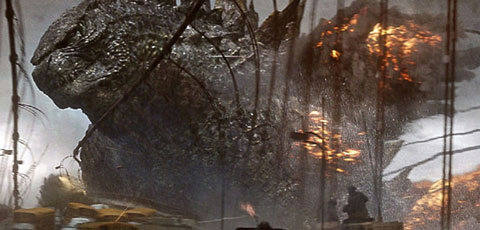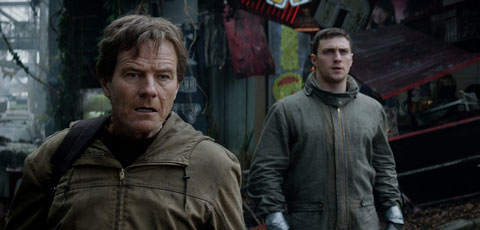In 1954, Japan's Toho Co. Ltd released Ishiro Honda's ground-breaking monster movie Godzilla in a country still reeling from the devastation of World War II. The film became a massive hit in Japan and, 60 years later, continues to resonate around the world for distilling the fears and horrors of the atomic age into an awe-inspiring force of nature: Godzilla.

"Godzilla is the benchmark of monster movies," said Gareth Edwards, the British director at the helm of the epic new vision for Toho's iconic creation. Edwards grew up on Japanese monster movies before discovering Honda's 1954 masterpiece on DVD and was fascinated by its stark allegorical subtext and continuing relevance in contemporary times. "If you went around the world with the silhouette of a giant dinosaur looming over a city, everyone would know exactly who it is-whether they've seen a Godzilla movie or not. But what many people don't realise is that the original Japanese Godzilla is actually a very serious film. I think that's the reason it was so embraced by Japanese culture-because not only is it a great monster movie, it was also very cathartic for people to see those images brought to life on screen in such a visceral and real way."
Working out of London, Edwards embarked on marathon Skype sessions with the film's Los Angeles-based screenwriter, Max Borenstein, to shape a story that would both hint at Godzilla's origins and unravel the mysterious events that herald his emergence in the context of the today's world.

Borenstein wrote the screenplay, from a story by David Callaham, after immersing himself in research, which included taking in all 28 Godzilla movies produced by Toho Co Ltd, encompassing the Showa, Heisei and Millennium series. "Our ambition was to treat this story as if this was a terrifying, real incident happening today, with all the gravity of a real disaster, while still making a big, spectacular monster movie that's fun to watch," Borenstein details. "The original film is an amazing tale of humanity's insignificance in the face of nature, but with the human strength and resilience to rise and survive a disaster of that magnitude."
Godzilla has always had a mystery and duality about him-a being of pure instinct that moves not in concert with humanity, but towering over it as he rises implacably from the sea. "Monsters have always been metaphors for something else," Edwards notes. "They represent the darker aspects of our nature and our fears of what we can't control. In a way, Godzilla almost embodies a kind of 'wrath of God'-not in a religious sense, but rather nature coming back to punish us for what we have done to the world. In our film, we are definitely tapping into those ideas."
